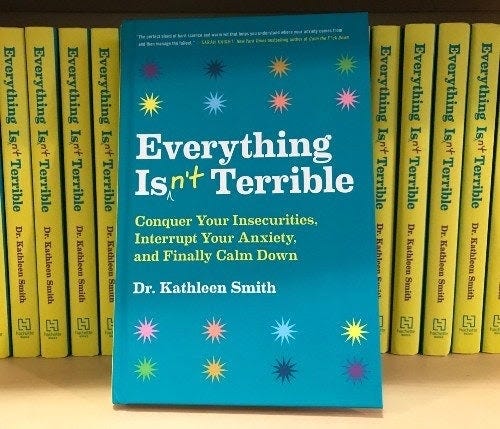The Trap of Changing Yourself to Change Others
Stop chasing after a magic fix, and try thinking differently about your relationships.
So often we try to will our relationships towards change. We search for the right button that will make them feel freer and easier. The right recipe will make people behave better.
If you’ve been overfunctioning too much, maybe you take a giant step back, waiting for the other person to become more responsible.
If you noticed some distance in your marriage, maybe you throw all your energy into connecting with your spouse.
If you’re constantly pulled into friend drama, maybe you insist that you want nothing to do with it.
Only to find that your level of anxiety, and other people, don’t really change.
Much of self-help culture is focused on the ways we relate to others. If you can just figure out your attachment style, your personality type, or your Enneagram number, you can unlock a path towards improvement. What I appreciate about Bowen theory is the focus on the intensity of our relating, not just the style of our relating.
A person can pull a 180 on their behavior but still operate with the same intensity in their focus on others. Maybe you start to let your kid be more responsible for their homework, but are just as anxiously focused on their behavior. Maybe you try to not text someone too much after a first date, but spend the same amount of energy trying to guess how much they like you. Or you dive into “fixing” a friendship that you’ve neglected, only to find that it’s hard to relax and be yourself.
The behavior may have changed, but the level of sensitivity in the relationship has not. You may feel just as allergic to the closeness as you do to the distance.
Changing yourself to change others is a great recipe for frustration and burnout. While changing self for self can be a much more encouraging process. A person working on self is:
Shifting focus away from fixing, instead observing one’s self and others in the larger relationship system.
Learning to manage their emotional reactivity (aka anxiety) in relationships more responsibly.
There is a lot of focus on the right technique that will lower the reactivity in a relationship. People often frown when I tell them it doesn’t really matter what you do—it’s how much self is in the doing. Maybe you join a yoga class, practice being a better listener, or simply get more sleep at night, etc. A professional telling you, “This is the way!” can provide some temporary relief, but it doesn’t necessarily help a person become more responsible.
Here’s my question for you this week: How would you like to become more responsible for your reactivity in relationships? What could help lower the intensity with which you relate to people?
This could look like:
Sitting with the anxiety of not doing what you’d normally do.
Being more responsible for your mind and body.
Focus on defining your thinking rather than changing others’ thinking.
Being curious about other people’s thinking.
Staying connected with people who are easy to avoid.
Defining and holding onto your best thinking in anxious relationships.
If you’re thinking, Kathleen, this is all very general and will keep me busy my entire life, you are correct! We’re already experts at binding up our anxiety quickly, or borrowing solutions. An extra drink at dinner might help you get along with your mother. It’s easier to like your spouse on a fancy vacation. You might feel optimistic about your organization when a consultant gives you a three-step plan.
These things are not good or bad. They just don’t get to the heart of the matter, the reality that we are social creatures who are deeply invested in getting along for our survival. This desire to do as others do, and to have others do as we do, is simultaneously our greatest gift and greatest challenge.
But here’s the thing. We are also creatures who can think for ourselves, relate to those we love (and loathe) as individuals, and let them do the same. (I just finished writing an entire book about this, so stay tuned.) And this week, I hope you can think about what it might look like to get a smidge more responsible for yourself in your relationships. About the difference it could make to take this up for a month, a year, or a lifespan.
News from Kathleen
In search of blurbers! Are you an author (or know a well-known author) who’d be interested in writing a blurb for my upcoming book? Email me at kathleensmithwrites@gmail.com.
Nothing else new this week. Eager for DC’s sweaty August to end, and for the school year to begin, as well as the Bowen Center’s training programs. This year I’ll serve on the faculty for the intro program.
Want to support my work? You can:
Buy me a coffee to keep the thoughts flowing.
Leave a review of my book on Amazon. Reviews help people find the book.
Forward or share this newsletter to others who might be interested.
Want to read more of my writing? Get my book, Everything Isn't Terrible, from Amazon, Barnes and Noble, Indiebound, or your local bookstore (best option).
Want a free anxiety journal with the book? Calming Down & Growing Up: A 30 Day Anxiety Journal includes thirty daily prompts to help you reflect on and respond to your anxious behaviors. To receive a copy, just email me your receipt of Everything Isn’t Terrible.
Email me if you’re interested in Bowen theory coaching or want me to speak to your group or workplace. Follow me on Twitter, Facebook, or Instagram.
Want to learn more about Bowen theory? Visit the Bowen Center’s website to learn more about their conferences and training programs.



